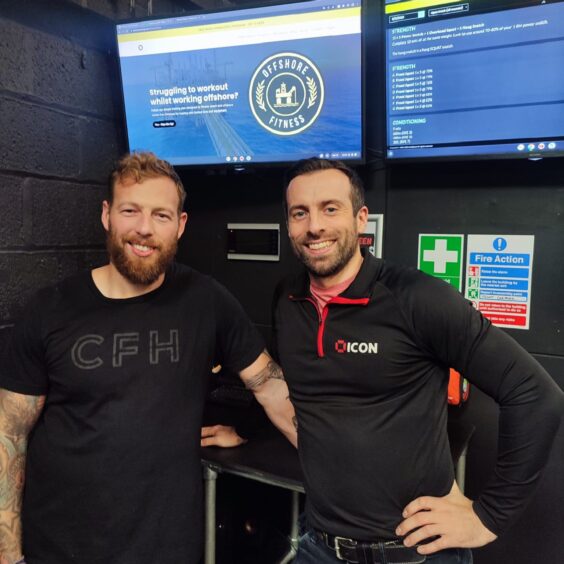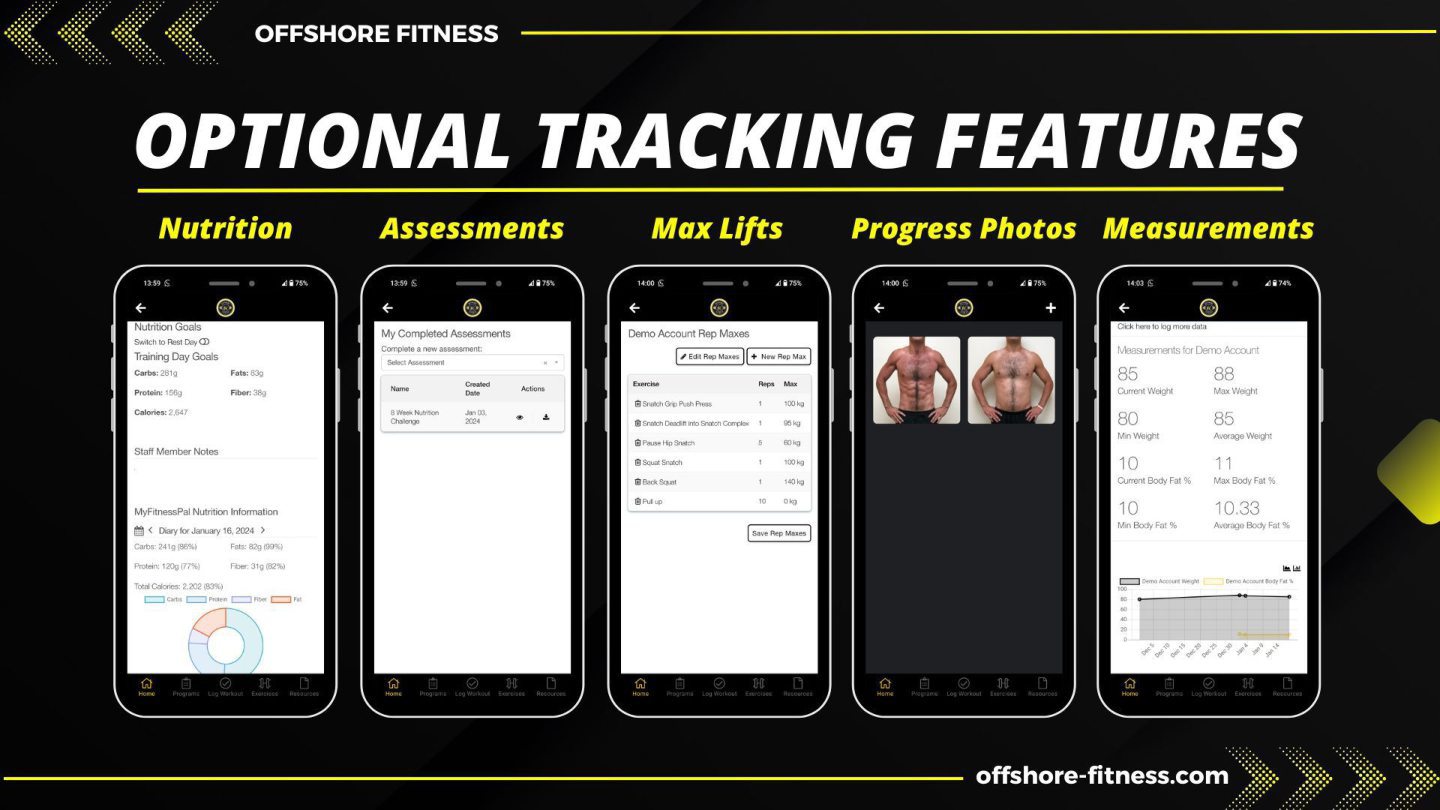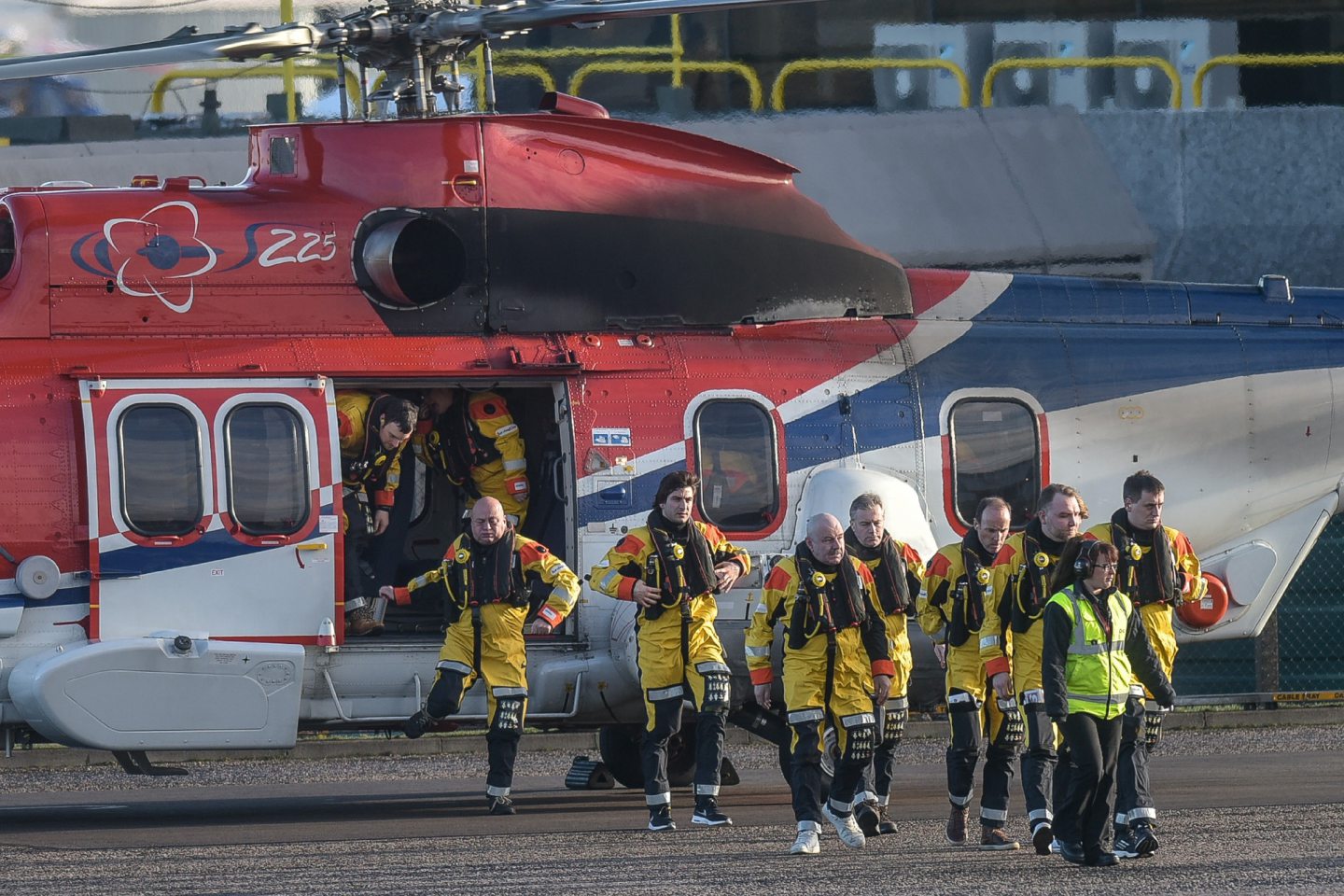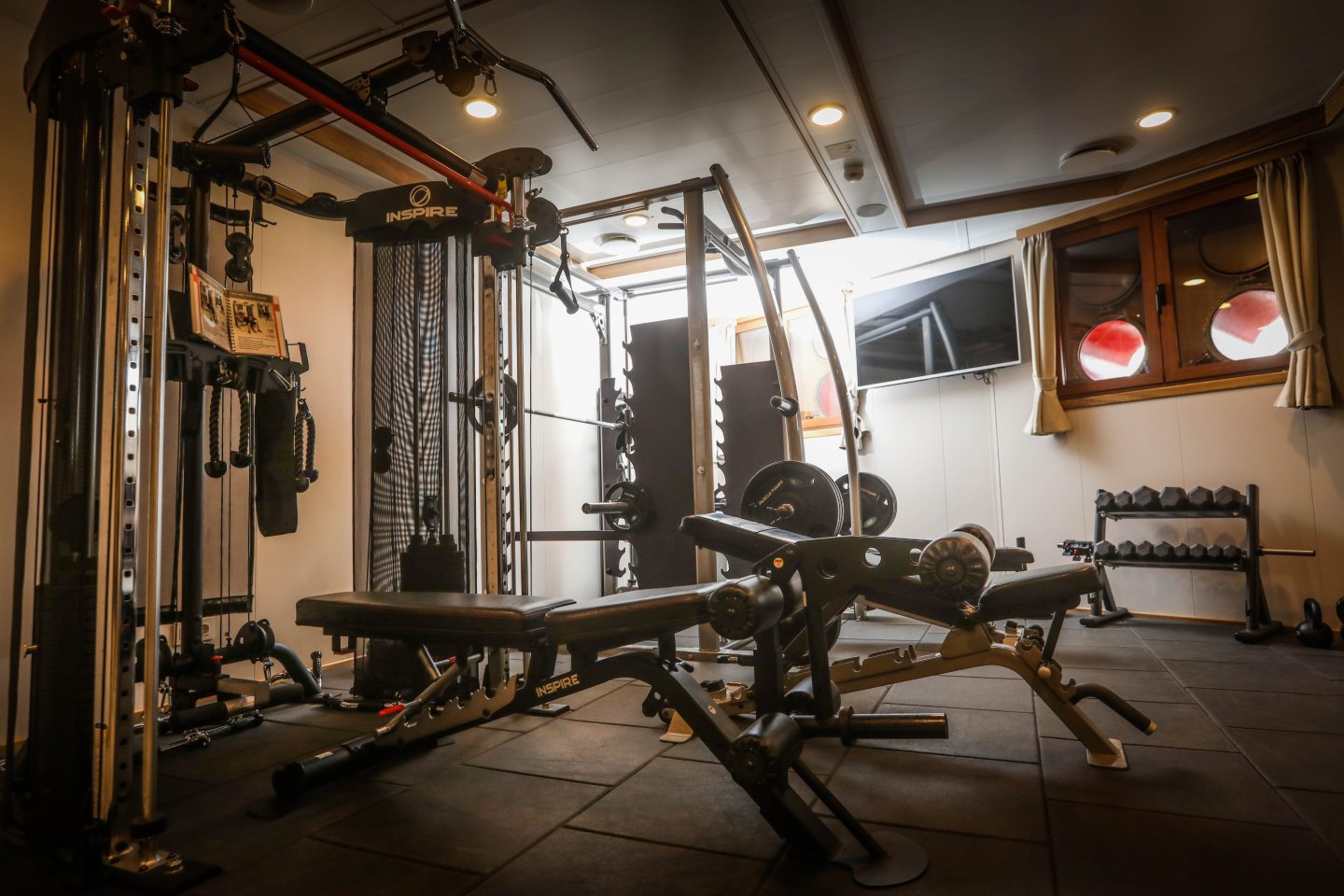
The team behind a fitness company targeting the unique challenges faced by offshore workers has released a new app after a wave of interest in their programme.
Dan Simpson launched the Offshore Fitness platform alongside friend and business partner Shaun Gibbins last year after the pair felt there was a need for nutrition and training advice tailored to the needs of offshore workers.
According to data from TAC Healthcare, the average weight of North Sea offshore workers increased from 75kg in 1975 to 99kg in 2023.
As a result, the industry is assessing safety implications including lifeboat capacity, helicopter flight rules and medical evacuation training.
Challenge to keep fit offshore
As an offshore rope access technician and electrician himself, Mr Simpson spoke to Energy Voice last year about the challenges of keeping fit on offshore platforms.
Following the interview, he said the pair received so much interest they had to temporarily close the programme to new entrants.
This led team to accelerate their plans to rollout a new online platform and Offshore Fitness app, available via the Apple Store and Google Play.
Mr Simpson said the team has also developed a new six-week training programme targeted at offshore workers wanting to pass a medical fitness test.
“If you’re not particularly interested in getting fit, but you want to hit that target of making your medical or if you’re on emergency crews for helicopters or fire safety or anything on the rig, it will just get you fit enough to pass your medical and hopefully inspire you to keep that fitness,” he said.
The new app contains programmes targeted at various fitness levels, with a library of exercises focused on different muscle groups.
Workout programmes can easily be customised within the app, with the option to swap out exercises depending on the availability of equipment on different offshore assets and at home.
The app also includes the ability to log exercises, allowing users to track their progress.
There are also a range of nutritional resources and tips specifically aimed at helping offshore workers maintain healthy eating habits.
North Sea operator interest
Alongside plenty of interest from individuals, the pair said they have had discussions with multiple North Sea firms about making their programme available to staff.
North Sea operators are increasingly having to contend with health and safety issues relating to weight gain and associated medical problems.
According to an Offshore Energies UK (OEUK) report, blood pressure, diabetes and weight were the main causes of failed oil and gas medicals in 2022.
Offshore healthcare providers carried out a total of 150,550 medical assessments in 2022, and of those, 1,308 were failed.
The report also revealed that the number of ‘medevacs’ in UK waters has hit its highest rate in five years.
A total of 337 medevacs were carried out by the Coastguard in 2022, affecting 0.87% of the offshore population.
This has gone up from the 0.43% reported in 2017, meaning the proportion of workers affected by medevacs has doubled in the last half decade.
OEUK says that “cardiac incidents” were the most common reason for medevac in 2022, accounting for 27% of cases.
Benefits not limited to offshore employees
Mr Gibbins said companies are increasingly keen to invest in programmes to improve the health and fitness of their staff, and the resulting benefits are not limited to employees.
He pointed to Australian research which found worksite health programs on average decrease sick leave absenteeism by more than 25% and decrease worker compensation costs by more than 40%.
Overall, he said the research showed businesses saved around £5.81 for every £1 invested in employee health and wellbeing.
Mr Gibbins said companies are increasingly looking at ways to invest in the health and wellbeing of their employees, with the benefits extending beyond the individual.
“We had someone reach out to us because they had a number of employees stuck in a cycle of restricted medicals because of weight issues,” he said.
“So they really wanted to try and find something to help educate and support their staff and make life easier.”
Regular physical exercise also leads to mental health benefits, with poor mental health an issue faced by many in the offshore industry.
Targeted fitness approach
Mr Gibbins said another North Sea firm he spoke had previously tried providing an onsite personal trainer to staff offshore.
“But realistically that’s not an easy thing to do because people are on different shifts and so you might need more than one person to cover everybody,” he said.
“There are also a lot costs involved with having someone onsite, as well as another safety risk.
“So I think companies are aware there is an issue and things could be done in a better way and they’re keen to do that, they just didn’t realise anyone was actively trying to provide that solution for them.”
Mr Gibbins said their approach can be targeted to the needs of companies and individuals, with the option to collect data from health assessments and exercise programmes to track progress.
“We can even create private groups for specific assets or across the whole company, so staff can interact and talk about their progress, tips and advice,” he said.
“It allows for companies to to keep track of things like distance covered and weight lost over a certain time period, which they can use to motivate and reward staff.”
Recommended for you


 © Supplied by Offshore Fitness
© Supplied by Offshore Fitness © HEMEDIA
© HEMEDIA © Supplied by Dan Simpson
© Supplied by Dan Simpson © Supplied by Mhairi Edwards/DC Th
© Supplied by Mhairi Edwards/DC Th